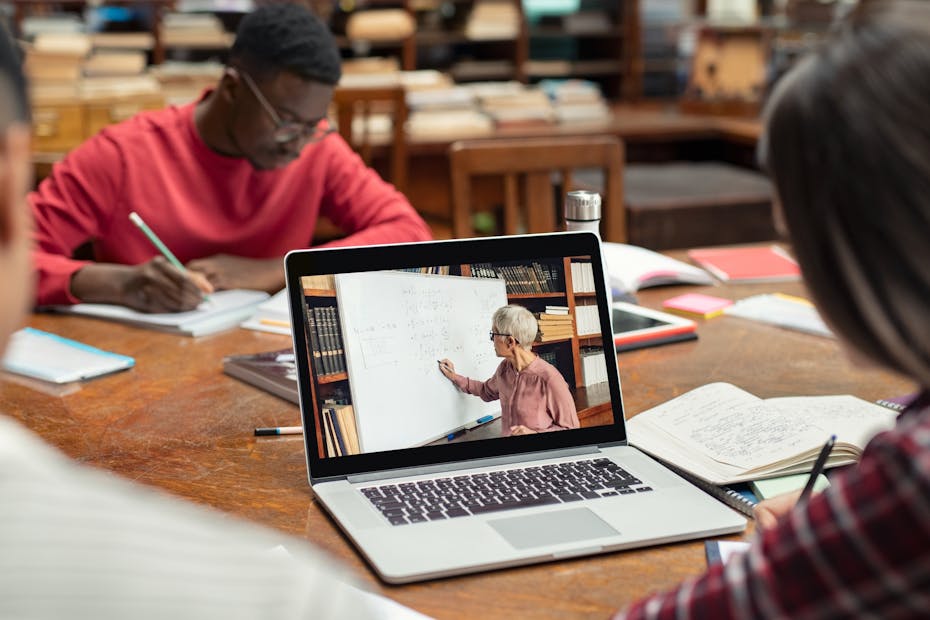
Ground Picture/Shutterstock
Technology has become the centre of our lives. It has also changed how university students learn and how lecturers teach. Some institutions had already shifted to some form of online teaching and learning before 2020. Then the onset of the COVID pandemic made digitised education commonplace in many parts of the world.
But it’s not enough for universities to offer technological platforms. Those who transfer knowledge – lecturers – must do so skilfully. They must also be able to appropriately support their students through any challenges related to online teaching platforms.
In South Africa, as in many developing countries, most of those entering higher education are not familiar with online learning. They are not adept at finding their way around the internet. They struggle to navigate university learning management systems. The situation is made worse when lecturers don’t have the skills needed to facilitate classes and tutorials online. This dearth of skills on their lecturers’ part can negatively affect students’ performance and achievement.
I conducted a study to explore how lecturers’ skills, knowledge and experience in e-learning affect student support. The research focused on an open distance e-learning institution – the largest on the African continent. It does not offer any face-to-face learning. Before the pandemic, teaching was based on a blended learning approach: written materials were delivered to students by post; others accessed it online from the university’s learning management system.
So, its teaching staff ought to be extra competent at using online technologies to teach and support students. My participants were academic staff members who had successfully completed a training programme designed to boost their digital skills. I also solicited feedback from students’ discussion forums to see how their learning experiences differed when their lecturers were technologically adept versus when they were not.
I found that most lecturers lacked the knowledge and digital skills necessary for open distance e-learning before the training. This had a significant negative impact on their attitudes to using technology in their teaching. It also hindered their ability to successfully support students. However, the capacity-building programme they completed greatly improved their digital literacy. It also positively shifted their perspectives.
My findings suggest that universities should offer their staff continuous professional development in distance education and e-learning. This will help lecturers to better support and improve the quality of students’ learning experiences.
What I found
The study focused on digital skills developed through an international partnership that aimed to develop academics’ capacity for e-learning. Existing research had already established that these sorts of partnerships were a good way to equip academics with expertise in information communication technology. This is because facilitators from developed countries, with comparatively long experience, access and knowledge regarding online learning technologies and techniques, are well placed to support those in developing nations like South Africa.
I collected data from participants in several ways, including interviews and online questionnaires. The academic staff I worked with had all participated in a capacity building programme offered as part of a partnership between the University of South Africa and the University of Maryland Global Campus between 2013 and 2015.
I also studied more than 1,000 students’ posts on online discussion forums related to two modules hosted on the university’s learning management system.
Most of my participants said the training helped them to better comprehend theories of distance education. It also enabled them to apply those theories when creating learning materials and facilitating learning online. They also felt empowered to increase student engagement, such as by creating online student communities.
The study confirmed that a lecturer’s lack of online facilitation skills can have a negative impact on learner outcomes. Lecturers cannot impart skills they themselves lack or facts they do not know to students: you can’t teach it if you don’t know it.
Steps to take
Based on my findings, I suggest that universities, whether they are partially or fully online, should:
conduct institution-wide surveys to assess the readiness of academic staff for online teaching. The feedback can inform skills development plans and support systems both for academic and support staff.
create a platform for staff members who complete online teaching training programmes to share information and their experiences. This will contribute to the wider implementation of e-learning. Staff members who complete formal e-learning training programmes also need to be strategically co-opted in research, discussions, and projects within the university to share their knowledge more widely.
ensure that staff are properly trained and prepared to adapt and to adopt new technologies
ensure that students are creatively and actively engaged using the digital platforms developed as part of e-learning programmes. This includes being visible on digital platforms such as discussion forums and actively interacting with the students.

Mpho-Entle Puleng Modise, Lecturer, University of South Africa
This article is republished from The Conversation under a Creative Commons license. Read the original article.










